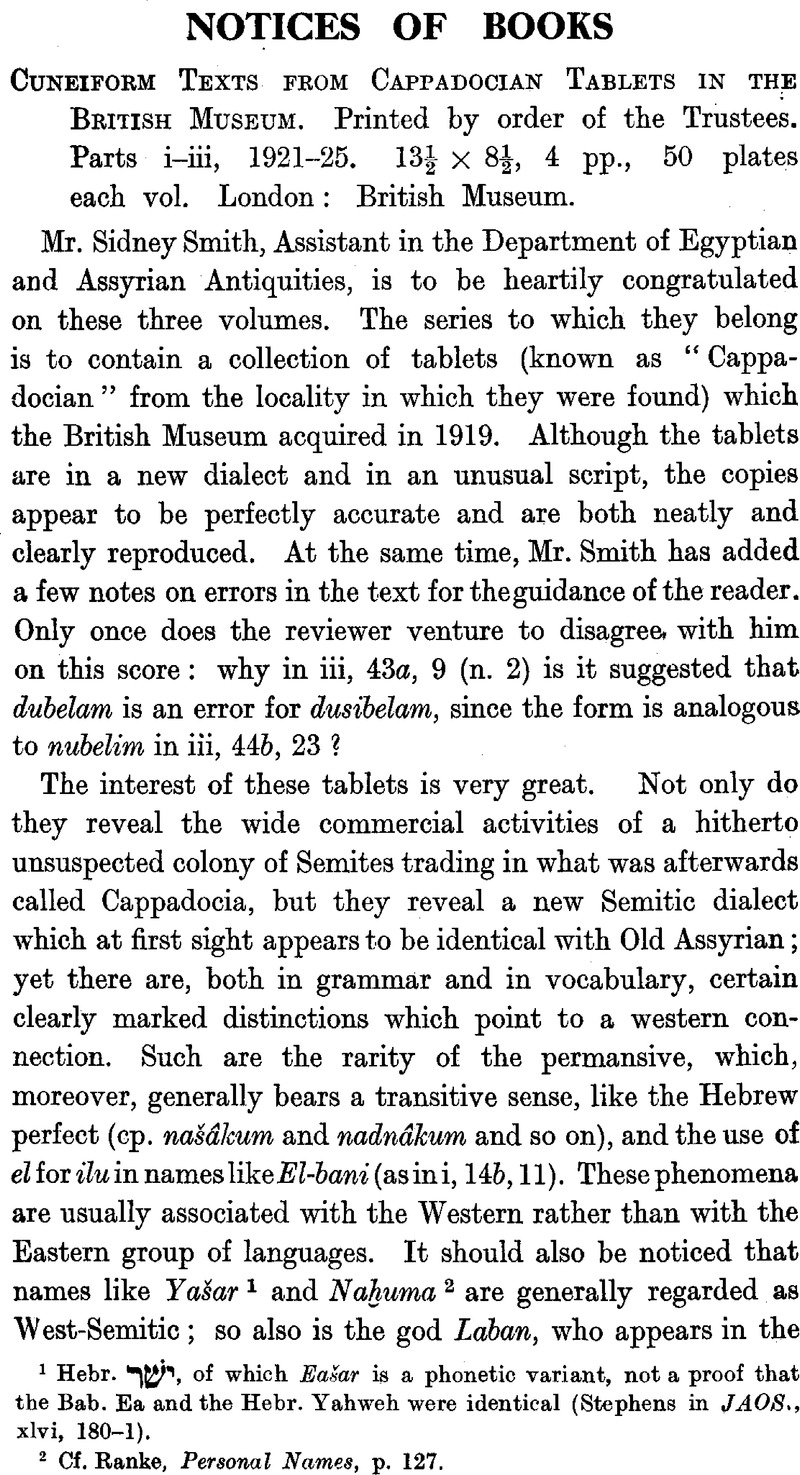No CrossRef data available.
Published online by Cambridge University Press: 15 March 2011

page 729 note 1 Hebr. ![]() , of which Eašar is a phonetic variant, not a proof that the Bab. Ea and the Hebr. Yahweh were identical (Stephens in JAOS., xlvi, 180–1).
, of which Eašar is a phonetic variant, not a proof that the Bab. Ea and the Hebr. Yahweh were identical (Stephens in JAOS., xlvi, 180–1).
page 729 note 2 Cf. Ranke, Personal Names, p. 127.
page 730 note 1 Hence ana bani (in i, 36b, 3–4) stands for ana pâni “ to the presence of ” and does not mean “ to the son of ” (Smith, pt. i, p. 16).
page 730 note 2 Hence the explanation of forms like usibel given by Stephens (in JAOS., xlvi 180) is inadequate.
page 731 note 1 So mu-ta-be-el-ti-in is corrected by the addition of the sigm tim to mu-ta-be-el-tim in i, 33a, 15–16 (cp. 11. 9–10).
page 731 note 2 The word beldum (in i, 7b, 16) stands for bilbum “talent” and does not mean “ principal ” (Smith, pt. i, p. 13).
page 732 note 1 Mr. Smith has corrected this mistake in R.A., xxi, 88–91. Both here and in the passage under review Mr. Smith writes i-di-in for i-din or, with a suffix, i-di- incorrectly.
page 732 note 2 See Landsberger in Z.A., xxxv, 30–1, n. 4 (dur for kib).
page 733 note 1 Properly only the masc. ![]() occurs, but the fem.
occurs, but the fem. ![]() is used as a constr. form before other nouns and pronominal suffixes.
is used as a constr. form before other nouns and pronominal suffixes.
page 733 note 2 This is more likely than ![]() (Num. xix, 23).
(Num. xix, 23).
page 733 note 3 Gesenius-Kautzsch, Hebrew Grammar, § 134, 1b.
page 733 note 4 Ibid., § 97a.
page 733 note 5 E.g. Code of Ḫammurabi, vb, 40–1 : sinništum ši ul aššat “that woman is not a wife ”.
page 733 note 6 E.g. ibid, xxvb, 1: ana dār “for ever”; xiiia, 50: ana šaluš “for a third ”.
page 733 note 7 E.g. Ašurn. i, 43 : šānin ul ibši “ there was not a rival ”.
page 734 note 1 Cp. Code of Ḫammurabi, xiiiα, 24–5, al.